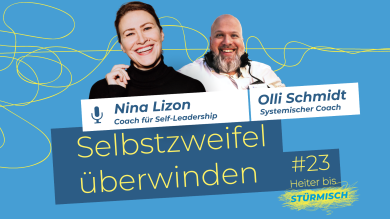
Postpartum tips from emergency midwife
The postpartum period is one of the most important phases in the lives of parents and newborns. It is a time of physical regeneration, emotional adjustment and intense bonding. But it is precisely in these first weeks after the birth that many new mothers face challenges that are often underestimated.
In this article, midwife Katharina von NotdienstHebamme explains the challenges that often arise during the postpartum period, dispels myths and gives valuable practical tips on how to organize the postpartum period in the best possible way.
Your postpartum timetable helps you to better understand the individual phases of the postpartum period and to prepare yourself.
What you can expect in this article
- Importance of the postpartum period for mother, parents and child
- Typical challenges faced by women in the postpartum period
- The role of the midwife in the postpartum period
- 5 tips to make the most of the postpartum period
- The postpartum schedule: The course of the first weeks
- Midwife service before and after the birth
- Frequently asked questions (FAQ)
Katharina, what exactly is the puerperium and why is this time so important for mother, parents and child?
Midwife Katharina: The postpartum period begins immediately after the placenta is delivered and usually lasts around eight weeks. A lot happens during this phase - both physically and emotionally. The body undergoes involution, the uterus contracts again, the birth wounds have to heal, milk production has to get going and the hormones change dramatically. All of this serves the regeneration and the new role as a mother.
At the same time, the postpartum period is a crucial time for building a deep bond between parents and child. The first touches, breastfeeding or feeding and getting to know each other significantly shape the baby's sense of safety and security.
This time is often underestimated because society often expects "everything to return to normal quickly".
"The postpartum period is much more than just recovery - it is the foundation for life together with your child. Just like building a house, if the foundation is stable, it will last for a long time."
What typical challenges do women face in the first few weeks after giving birth?
The challenges are manifold:
- Physical pain can be caused by birth injuries, afterpains or a caesarean section. This pain can significantly restrict everyday life and mobility.
- Breastfeeding often requires more practice than expected. Problems such as sore nipples, engorgement or uncertainty when latching on are not uncommon. Professional support can bring a lot of relief here. It is even better if women have had the opportunity to acquire a lot of knowledge about breastfeeding before giving birth.
- Emotionally, many women move between feelings of happiness and exhaustion. The so-called baby blues - with mood swings and sudden outbursts of tears - are hormone-related and completely normal.
- Lack of sleep is another major challenge. Caring for a newborn requires constant attention and radically changes the daily rhythm. [Reading tip: Understanding baby sleep: How much sleep does my baby need?]
- Organizational issues such as household management, visiting times and errands can also cause stress if they are not planned well. Many women overestimate what they can achieve during this time and become overloaded as a result.
How do midwives support mothers and families during this sensitive phase?
Midwives work holistically. Medically, they monitor the recovery, check the healing of birth injuries or scars and pay attention to the course of the postpartum flow. The baby's weight gain, drinking behavior and umbilical healing are checked.
A central component is breastfeeding support. Midwives provide support with latching on, give tips on comfortable breastfeeding positions and help with difficulties such as engorgement or sore nipples.
Midwives are also important contacts for emotional support. They encourage women to listen to their body's signals, respect boundaries and take time to adjust to life with a newborn.
What myths about the postpartum period do you often encounter and what do you think should be corrected?
1. a widespread myth is the idea that women should fully recover after just a few days. In fact, the body needs several weeks to recover from pregnancy and childbirth.
2. also misleading is the assumption that breastfeeding always works without problems right from the start. Breastfeeding is a learning process in which support is not a sign of weakness, but of care.
3. the view that lots of visitors are automatically good for you should also be viewed critically. Especially in the first few days, rest and privacy are often more helpful for recovery and the start of breastfeeding.
4 The baby blues are also sometimes mistakenly interpreted as weakness. However, it is a normal hormonal reaction that many women experience.
All these myths lead to moms being under a lot of pressure. However, this stress is not at all good for postnatal recovery, breastfeeding and the start of parenthood.
What tips do you have for making the most of the postpartum period?
1. it is helpful to organize support in advance - for example for housework, shopping or meals. Visits should be consciously planned and dosed in the first few weeks.
2 A balanced diet, sufficient fluid intake and regular rest breaks are crucial. Household chores should take a back seat during this time to allow for physical recovery.
3. skin contact, cuddling together and closeness promote bonding and have a calming effect on parents and child.
4 In order to reduce the uncertainty after the birth to a normal level, it is important to prepare not only for the birth but also for the time with the baby. Breastfeeding courses, baby care courses and first aid provide important knowledge and support during this uncertain time.
5. warning signs such as heavy bleeding, fever or persistent depression should be taken seriously and discussed immediately with a midwife or doctor.
"The postpartum period is not a time to prove resilience, but a phase to heal, grow and arrive in a new life." - Midwife Katharina
The postpartum timetable: Overview of the first weeks
Week 1: Arrive and relax
The first week is characterized by physical regeneration and emotional adjustment. The menstrual flow is heavy and contractions can occur. Mood swings often occur during this phase. Rest and support are particularly important at this time.
Practical example: A mother who felt exhausted on the third day after giving birth benefited significantly from reducing visiting times and adhering to a fixed rest schedule.
Week 2-3: Gain confidence
The menstrual flow becomes weaker, pain subsides. Breastfeeding or feeding often becomes more routine, but challenges can still arise. Walks in the fresh air support the recovery process.
Practical tip: Pain when breastfeeding should not be ignored - even a small change in position can often help.
Week 4-6: Gathering strength and shaping everyday life
Postnatal recovery is well advanced. Light postnatal exercises can begin if it feels good. Everyday life is becoming more structured, but overloading should still be avoided.
Example: Many women report that they feel more energy again from the fourth week onwards, but are still clearly aware of their physical limitations.
From week 7: Transition to everyday life
Physically, most women feel more stable and sporting activities are possible again if there are no complications. Emotionally, the new family routine stabilizes and the focus expands to other areas of life again.
Thank you so much for the interview, Katharina!
Midwife service before and after the birth
In cooperation with NotdienstHebamme , pme Familienservice offers professional support and supplementation to outpatient midwife care.
1. tested online courses: With the tested tips and practical instructions, new parents and pregnant women receive comprehensive support in the online courses from NotdienstHebamme that can be accessed at any time - ideal for preparing for the new addition to the family.
Online courses are available on the following topics: Birth preparation, baby care, regression, baby massage, breastfeeding.
2nd midwife consultation hour: With midwife advice from NotdienstHebamme via video chat, telephone or e-mail, parents receive quick answers and support, even with psychosocial stress such as mood swings and baby blues.
You can find more information about the cooperation with NotdienstHebamme in our service portal My Familienservice. Not yet a customer of pme Familienservice? Please contact us!
Frequently asked questions (FAQ) about the postpartum period
1 How long does the puerperium last?
The puerperium begins immediately after the birth and usually lasts around eight weeks, during which the body and mind recover from the birth.
2 What helps with breastfeeding problems in the postpartum period?
Breastfeeding problems such as sore nipples or engorgement can usually be solved with the professional support of midwives. Patient latching on and the correct breastfeeding position are important.
3 When should I contact a midwife in the postpartum period?
Midwives should be contacted immediately if you have any questions about postnatal recovery, pain, breastfeeding problems or emotional stress. Quick help is particularly important in the event of warning signs such as heavy bleeding or fever.
4 What is the baby blues, and is it normal?
The baby blues is a hormone-induced mood swing with sadness and exhaustion in the first few days after the birth. It is completely normal and usually temporary.
5 How can I best organize the postpartum period?
A deliberate rest period, support in the household, good nutrition and patient handling of the baby are important factors. Planned visits and emotional support also help.












